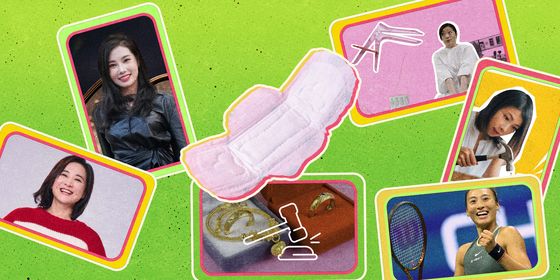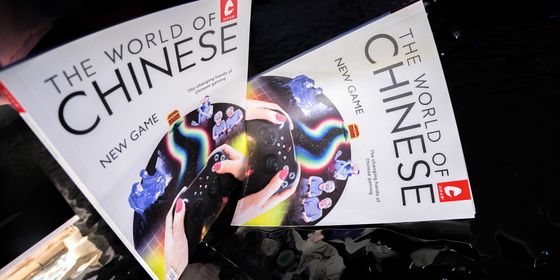China’s top political meetings are an annual battleground for female representation
At this year’s “Two Sessions” meetings of China’s top lawmakers, which took place in the last week of May after two months of delays due to Covid-19, much was made of motions and proposals made by female deputies and members, many of which sought to enshrine protection for women and children in China’s new Civil Code.
Female-led proposals for allowing single women to freeze their eggs, raising the age of consent, and providing insurance coverage for postpartum depression treatment were applauded on social and mainstream media alike, with some comments by feminist bloggers on Weibo receiving tens of thousands of “likes.”
“Female representatives often care more about the power and rights of women and children, due to the fact that they know the importance of these issues better than men,” Hou Hongbin, a feminist blogger with over a million followers on Weibo and WeChat, told TWOC.
However, “the number of women that participate in politics is very few,” says Hou, and a number of controversial policies were adopted this year that reflect the need for better female representation at top political meetings.
According to the National Bureau of Statistics, only the 742 of the 2,980 members of the 13th (and current) National People’s Congress (NPC) are women, or around 24.90 percent of the total. Women make up around 20 percent of the 13th Chinese People’s Political Consultative Conference (CPPCC), or 441 out of 2,158 deputies. There are also no women in the Communist Party’s top leadership body, the Politburo Standing Committee.
Studies have shown that more women in government leads to more progressive policymaking. A 2009 study in Annual Review of Political Science found that female politicians are more likely to hold progressive attitudes, focus on issues such as civil rights and social equality, and substantively advance women’s rights in areas such as pay equity, violence against women, health care, and family policy.
In 2017, a gender equality survey of 100 members of the Communist Party of China by the Beijing Women’s Federation and Peking University Women’s Research Center found that, compared to females, male respondents have a more optimistic view on gender equality in China.
According to the study, male Party members believe that problems related to gender equality, such as gender-based employment discrimination, can be resolved by strengthening laws, neglecting the social and cultural factors that make the laws difficult to enforce at the grassroots level. They also believe that issues such as the low participation of females in politics and other professions are the outcome of biological differences, overlooking the social and cultural factors that have historically barred women’s access to these fields.
Many laws proposed by female deputies at this year’s Two Sessions addressed longstanding loopholes in legal interpretation. CPPCC member Peng Jing proposed to give unmarried women the right to freeze their eggs, which is de facto banned under Chinese law, as only those who meet the criteria to reproduce under the Family Planning Policy may use assisted reproductive technology.
These fundamental differences in gender perception are likely behind some of the controversial proposals made during the Two Sessions this year. This includes a 30-day waiting period for couples filing for divorce, which will become mandatory under the PRC’s new Civil Code, which will go into effect in 2021.
On Weibo, many female users pointed out that this hurts women especially, as males tend to hold more benefits and power in a marriage in terms of property rights and financial independence. Despite opposition from the public and from female lawmakers, including well-known author and CPPCC member Jiang Shengnan, who pointed out the risks in cases of domestic violence and property transfer, the law was passed, and applauded by other influential (and mostly male) voices: CCTV commentator Bai Yansong, for instance, believes it could prevent “irrational” divorce due to “childish arguments.”
The Two Sessions have also faced criticism in the past for creating a subtly sexist and unwelcome environment for female participants, including deputies and reporters. At the closing of 1998 Two Sessions, premier Zhu Rongji, while standing on the podium, expressed his admiration of Phoenix News journalist Wu Xiaoli, who was wearing an eye-catching red blazer. As the Two Sessions normally overlap with International Women’s Day, state media often ran photo galleries of female reporters on their website, describing them as “beautiful female journalists” with “elegant demeanors”; and in 2014, Sina News even ranked the appearance of female journalists at the event.
In 2009, Phoenix News’ fashion channel ran a guide for how female deputies should dress to “professionalize” their look, and a quick internet search brings up many recent examples of mainstream and social media prefacing their comments on the work of female lawmakers, reporters, and even interpreters with “beautiful woman” (美女).
Female lawmakers do more than just highlight gender or family issues at the Two Sessions—this year, they were also behind proposed legislation on animal abuse, violence against doctors, labor law, and fair contracts for online literature. According to Hou, female NPC deputies and CPPCC members tend to propose laws related to gender, family, education, the arts, and health care, but are still underrepresented in discussions on diplomacy, industry, agriculture, and sciences.
Simply increasing the number of women in politics, moreover, does not guarantee more equitable policies: In direct opposition to Peng Jin, NPC deputy Sun Weili, who is also female, recommended banning single women from egg freezing on the grounds that it could adversely affect the health of the fetus. Male deputies also proposed many changes that would benefit women, such as adding the HPV vaccine to national immunization programs and extending paternal leave for males to 35 days.
“Women and children together make up about two-thirds of China’s population, and most proposals related to children’s rights come from female deputies…[so] 80 percent of male deputies are just representing one-third of the population,” Hou reckons. “Those other two-thirds are not their priority…[whereas] with this year’s proposals on children’s rights, women felt their urgency. We need to increase that proportion.”
However, “it is not a matter of having exactly equal proportion” of female and male lawmakers, either, she says. Rather, the underlying social and political environment is responsible. “As US supreme court justice Ruth Bader Ginsberg said when someone once asked her how many [supreme court] justices out of nine must be female for her to consider it fair. She said ‘nine,’ because all nine justices used to be male and nobody said it was unfair.”












